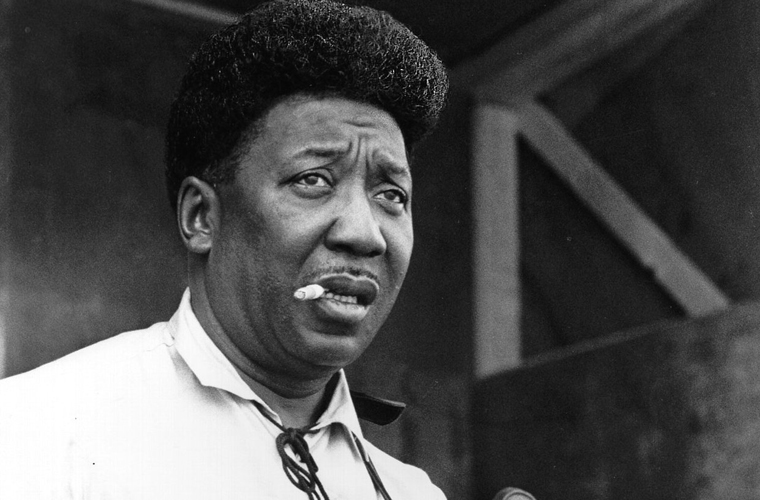Muddy Waters, born McKinley Morganfield in 1913, was an American blues musician who played a significant role in shaping the sound of modern blues music. He is widely regarded as one of the most important figures in the history of the genre, and his influence can be heard in the work of countless musicians who came after him.
Growing up in Mississippi, Waters was exposed to the rich musical traditions of the region from a young age. He began playing the harmonica and guitar as a child, and by the time he was a teenager he was performing at local parties and juke joints. In 1941, he moved to Chicago in search of better opportunities, and it was there that he began to develop his signature sound.
Waters’ music was characterized by his distinctive slide guitar playing, which he often used to create a haunting, melancholy sound. He also had a powerful voice that was capable of conveying a wide range of emotions, from joy and exuberance to sadness and despair. His lyrics often dealt with themes of love, loss, and the struggles of everyday life, and his songs spoke to the experiences of many African Americans living in the South during the mid-20th century.









Waters’ breakthrough came in the late 1940s, when he signed with the Chess Records label and began recording some of his most iconic songs. His first hit, “I Can’t Be Satisfied,” was released in 1948 and quickly became a favorite among blues fans. Over the next few years, he recorded a string of hits including “Rollin’ Stone,” “Hoochie Coochie Man,” and “Mannish Boy,” all of which have since become classics of the genre.
In addition to his work as a musician, Waters was also an important figure in the Chicago blues scene. He mentored many younger musicians, including Little Walter and Otis Rush, and helped to establish Chicago as a hub for blues music. He also played an important role in bringing the blues to a wider audience, performing at major festivals and touring extensively throughout the United States and Europe. Despite his success, Waters faced many challenges throughout his career. He struggled with alcoholism and drug addiction, and his personal life was often tumultuous. He also faced racial discrimination and prejudice, both in his personal life and in the music industry.
However, despite these challenges, Waters continued to make music throughout his life. He recorded over 30 albums and won numerous awards for his contributions to the blues. He passed away in 1983, but his legacy lives on through his music and the countless musicians who have been inspired by his work.
In conclusion, Muddy Waters was a true pioneer of the blues. His unique sound and powerful lyrics helped to shape the genre and continue to inspire musicians today. His legacy serves as a testament to the enduring power of the blues and its ability to speak to the human experience.

